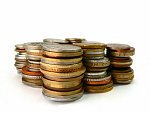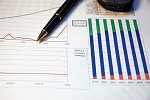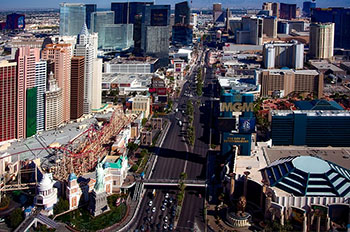Еquities markets in Europe were higher Monday on new data showing that manufacturing was up in the United States, the UK and China in July.
The Institute for Supply Management reported its factory index at 48.9 in July, more of an advance than expected after being at 44.8 in June.
The FTSE 100 was up 1.61 percent to 4,682.46 in London, while the FTSE 250 added 1.98 percent to 8,158.16.
 Petrofac Ltd. (LSE: PFC), a construction and chemical engineering group related to the oil and gas sector, led energy-related shares and turned in the best performance of the day on the 100 as it added 11.53 percent, as oil and metals prices were higher.
Petrofac Ltd. (LSE: PFC), a construction and chemical engineering group related to the oil and gas sector, led energy-related shares and turned in the best performance of the day on the 100 as it added 11.53 percent, as oil and metals prices were higher.
Ferrexpo (LSE: FXPO) led the mining sector higher as it added 12.68 percent on the 250, while over on the 100, three of the five top gainers were from the sector, where Kazakhmys (LSE: KAZ) was up 8.76 percent, Eurasian Natural Resources (LSE: ENRC) was 7.12 percent higher and Xstrata (LSE: XTA) gained 7.09 percent.
Barclays Bank (LSE: BARC; NYSE: BCS; TYO: 8642) led banks higher as it added 6.7 percent on a positive profits report from the first half.
Industrial rental equipment company Ashtead Group (LSE: AHT) led winners on the 250 with a gain of 13.25 percent.
British Sky Broadcasting Group (LSE: BSY) turned in the worst performance of the day on the 100 as it fell 2.84 percent, while casino and interactive gaming operator Rank Group (LSE: RNK) dropped 5.34 percent for the worst day on the 250.
The Eurofirst 300 was up 1.43 percent to 942.02 while the IBEX added 0.42 percent to 10,901, the CAC-40 was 1.5 percent higher to 3,477.8 and the Dax gained 1.78 percent to 5,426.85.
Carmakers were higher as Renault (Euronext: RNO) led the CAC-40 with a gain of 13.99 percent while Peugeot (Euronext: UG) was up 5.4 percent and Daimler (FWB: DAI; NYSE: DAI) added 3.4 percent.
Commerzbank (FWB: CBK) led the Dax as it added 5.09 percent while Credit Agricole (Euronext: ACA) was up 5.84 percent on the CAC-40.
There were only seven losers on the CAC-40, led by drinks maker Pernod Ricard (Euronext: RI) with a decline of 1.5 percent.
Most markets in the Asia-Pacific region were higher on the session.
In Tokyo the Nikkei 225 was down 0.04 percent to 10,352.47 but the Topix index added 0.77 percent to 957.56 in its 12th consecutive gaining session, while the Mothers market was up 0.32 percent to 464.86.
Carmakers were higher, helped by approval in the US House of Representatives of $2 billion more for the “cash for clunkers” program to boost new car sales.
Nissan Motor (TYO: 7201) added 5.4 percent as it introduced its electric car, the Leaf, which will be introduced next year in the Japan, the US and Europe, while Toyota (TYO: 7203) was up 2.5 percent and Mazda (TYO: 7561) gained 6.1 percent.
Banks were also higher in Tokyo.
In Australia the SP/ASX200 was up 0.46 percent to 4,263.4 and the Sydney Ordinaries added 0.49 percent to 4,270.5, while the Kospi was also 0.49 percent higher to 1,564.98 in South Korea.
The Straits Times Index added 0.84 percent to 2,681.64, the Hang Seng was up 1.14 percent to 20,807.26, the Shanghai Composite was 1.48 percent higher to 3,462.59, and the Sensex gained 1.62 percent to 15,924.23.
In Taiwan, on the other hand, the Taiex was 0.3 percent lower to 7,056.71.
New York markets were higher in early afternoon trade, with gains coming on the good news about manufacturing.
Even though the manufacturing sector remains in contraction with the ISM index reading below 50, the rising numbers have investors convinced that the sector is stabilizing.
The ISM index has not been above 50 in a year and a half.
At just past 1 p.m. in New York, the Dow Jones Industrial Average was up 1.1 percent to 9.272.13 while the Nasdaq Composite had added 1.2 percent to 2,002.22 and the SP 500 was 1.4 percent higher to 1,001.26.
Ford Motor (NYSE: F) was up 6.24 percent after it reported that July sales were 2 percent above sales last year in the same month, the first time that has happened since November 2007.
 Investment Markets tracks the world of investments to deliver news, analysis and the performance profiles of fund managers to
Investment Markets tracks the world of investments to deliver news, analysis and the performance profiles of fund managers to 

 Petrofac Ltd. (LSE: PFC), a construction and chemical engineering group related to the oil and gas sector, led energy-related shares and turned in the best performance of the day on the 100 as it added 11.53 percent, as oil and metals prices were higher.
Petrofac Ltd. (LSE: PFC), a construction and chemical engineering group related to the oil and gas sector, led energy-related shares and turned in the best performance of the day on the 100 as it added 11.53 percent, as oil and metals prices were higher.

 The latest figures produced by the Society of Motor Manufacturers and Traders (SMMT) show that car sales are down by 22 percent from last year.
The latest figures produced by the Society of Motor Manufacturers and Traders (SMMT) show that car sales are down by 22 percent from last year.
 The benefits of the idea would be that the increase in tax duty would be used to deal with tackle weight-related conditions and the fight against rising obesity.
The benefits of the idea would be that the increase in tax duty would be used to deal with tackle weight-related conditions and the fight against rising obesity. In 2016, Las Vegas also continued a slow and steady recovery, and that helped drive shares of MGM Resorts higher. 2016 also saw the opening of new resorts including Wynn Resorts (NASDAQ:WYNN) and Las Vegas Sands (NYSE:LVS). These took revenue from existing resorts, creating an incremental negative for Melco Crown (NASDAQ:MLCO) and MGM Resorts (NYSE:MGM) in the region.
In 2016, Las Vegas also continued a slow and steady recovery, and that helped drive shares of MGM Resorts higher. 2016 also saw the opening of new resorts including Wynn Resorts (NASDAQ:WYNN) and Las Vegas Sands (NYSE:LVS). These took revenue from existing resorts, creating an incremental negative for Melco Crown (NASDAQ:MLCO) and MGM Resorts (NYSE:MGM) in the region. The biggest gainer on the 100 was British Airways (LSE: BAY; NYSE: BAB), which was up 4.98 percent, while travel agent Thomas Cook Group (LSE: TCG) gained 4.61 percent.
The biggest gainer on the 100 was British Airways (LSE: BAY; NYSE: BAB), which was up 4.98 percent, while travel agent Thomas Cook Group (LSE: TCG) gained 4.61 percent. Energy-related engineering group Amec (LSE: AMEC) added 4.42 percent to turn in the best performance of the day on the 100, while other top gainers included insurers and hotels operators.
Energy-related engineering group Amec (LSE: AMEC) added 4.42 percent to turn in the best performance of the day on the 100, while other top gainers included insurers and hotels operators.